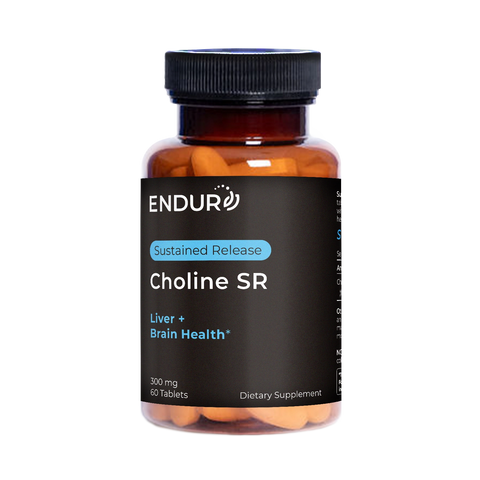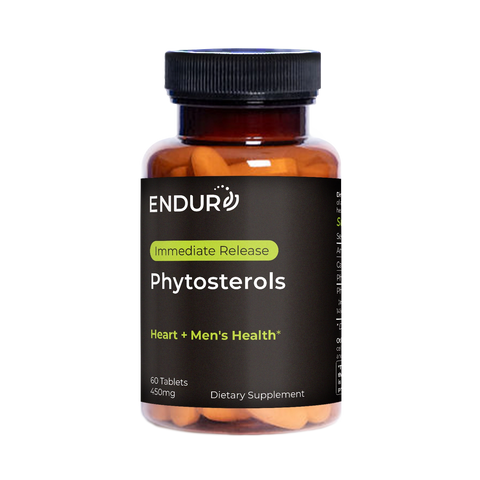Reproductive challenges are on the rise, as emotionally difficult as it can be, it’s critical to consider the scientific reasons behind it.
Recent studies confirm infertility rates are slowly rising, especially in the last decade. Reproductive health is complex, and there are many factors that play a role in healthy fertility. Understanding the intricate factors affecting reproductive health has never been more important, especially if you want to start a family. What science reveals about fertility might surprise you—especially when it comes to how natural elements like sunlight and nutrition can make a positive impact on natural success rates.
By the way, fertility health is important even if you’re not currently planning to conceive. Maintaining a healthy reproductive system has a direct impact on overall well-being, hormonal balance, and sexual health. Fertility is not just about pregnancy; it's a reflection of how well your body is functioning. Nurturing your reproductive health can improve everything from energy levels to mental clarity and mood stability. Check out Dr. Huberman’s Podcast on why you should pay attention to fertility. Regardless of whether or not you are trying to conceive, you’ll learn how nutrition, prescriptions, and even acupuncture affect egg and sperm quality — it’s a podcast you don’t want to miss!

The Sunlight Connection: More Than Just Vitamin D
In the quest for better reproductive health, this ancient connection has recently re-emerged to take center stage in scientific research: sunlight. Recent scientific studies shed light on how natural sunlight exposure can benefit fertility—especially male fertility.
The Role of Light-Sensitive Receptors in Male Fertility
Did you know the testicles contain light-sensitive receptors called Opsin 5? These receptors are similar to those found in the human eye. Not only are these photoreceptors involved in vision —they also play a vital role in regulating sperm production and overall male reproductive health.
What does this mean? Our bodies are designed to benefit from moderate sunlight exposure. In today's world, most people spend the majority of their time indoors. Clothing often shields our bodies from sunlight. This is a serious problem, especially since there’s growing evidence that targeted, safe sun exposure could significantly support male fertility.
A groundbreaking study published in Scientific Reports highlighted that Opsin 5 receptors help regulate testosterone production in response to light. This process can impact everything from sperm count to sperm motility, which are both critical factors in male fertility. A 2019 study in Science Direct further confirmed the important role Opsin 5 plays in maintaining healthy male fertility.
Nutrition’s Critical Role in Fertility
While sunlight exposure might be surprising, the link between nutrition and fertility is well-established. One of the most important nutrients for both men and women planning conception is choline, which has often been overlooked as an essential fertility nutrient.
Despite being crucial for fetal brain development and preventing neural tube defects, choline remains one of the most overlooked prenatal nutrients. Here's a closer look at the science behind choline and why it should be top-of-mind for couples trying to conceive:
-
For overall health, you need between 125mg - 425mg of choline per day, depending on your age. Refer to this NIH study to find your specific recommended amount.
-
Choline needs increase significantly during pregnancy and lactation, with requirements nearly doubling during the third trimester
-
It plays a vital role in the development of the baby's memory and cognitive functions, with lasting benefits into childhood according to NIH-funded research.
Want to give your child the best start in life? Discover what 500mg of choline per day can do for you in this informative video on prenatal nutrition featuring Dr. Rhonda Patrick.
Optimal choline levels can make all the difference when planning for pregnancy. Men need adequate amounts for healthy sperm production, and women need it for egg quality and early embryonic development.

Supporting Prostate Health: A Fertility Factor
Prostate health is another critical factor when it comes to reproductive health. As men age, the prostate becomes a focal point of concern, since its health is directly linked to sexual wellness and fertility.
Endur Phytosterols: A Natural Approach to Prostate Support
Supporting prostate function naturally is one of the best ways to optimize reproductive health in men. This Infertility Awareness Month, we're highlighting how our premium Phytosterols supplement—a natural, plant-derived formula — scientifically supports prostate health and urinary function in men.
Our Phytosterols supplement contains:
-
Beta-sitosterol and other plant sterols that support healthy prostate size. Clinical trials published by the NIH show significant benefits for managing urinary symptoms and improving urinary flow.
-
Bioactive compounds that promote health inflammatory markers and reduce oxidative stress.
-
Quality ingredients backed by over 47 years of family research, with formulations based on clinical data.
In addition to supplementation, certain foods can help encourage healthy prostate function. Incorporating walnuts into your diet can be a great natural source of prostate health support. Other prostate-friendly foods include tomatoes, which are rich in lycopene—a powerful antioxidant shown to support prostate health. Green tea is known for its anti-inflammatory and antioxidant properties.
Pomegranate has been linked to reducing prostate cancer risk; broccoli and other cruciferous vegetables contain compounds that may help detoxify harmful substances in the body. Flaxseeds are high in omega-3 fatty acids and lignans that may help regulate hormone levels. By including these nutrient-dense foods in your diet, you can further support prostate health and overall wellness.

Fertility-Supporting Actions This Month
Infertility doesn’t have to define you. As we observe Infertility Awareness Month, there are several evidence-backed actions you can take today to naturally support your fertility:
-
Mindful Sun Exposure – While we’re not suggesting excessive or inappropriate exposure, consider safe, controlled sunlight exposure to reap the benefits. A few minutes of sunlight on the genital area can help optimize reproductive health.
-
Optimize Choline Intake – Include choline-rich foods like eggs, liver, fish, and cruciferous vegetables in your diet. Alternatively, consider supplementation if you’re planning for pregnancy or are already expecting.
-
Support Prostate Health – Men over the age of 30 may benefit from proactive prostate care. Endur’s Phytosterols supplement covers all your bases with scientifically proven plant-based sterols. A healthy prostate contributes to overall fertility and sexual wellness.
-
Reduce Environmental Exposures – Minimize exposure to endocrine-disrupting chemicals found in plastics, pesticides, and many personal care products. These substances can interfere with hormone balance and fertility. <Link to blog about microplastics>
By incorporating these strategies into your routine, you can take significant steps toward improving your reproductive health—whether you’re planning for pregnancy or simply looking to support long-term fertility and overall wellness.



